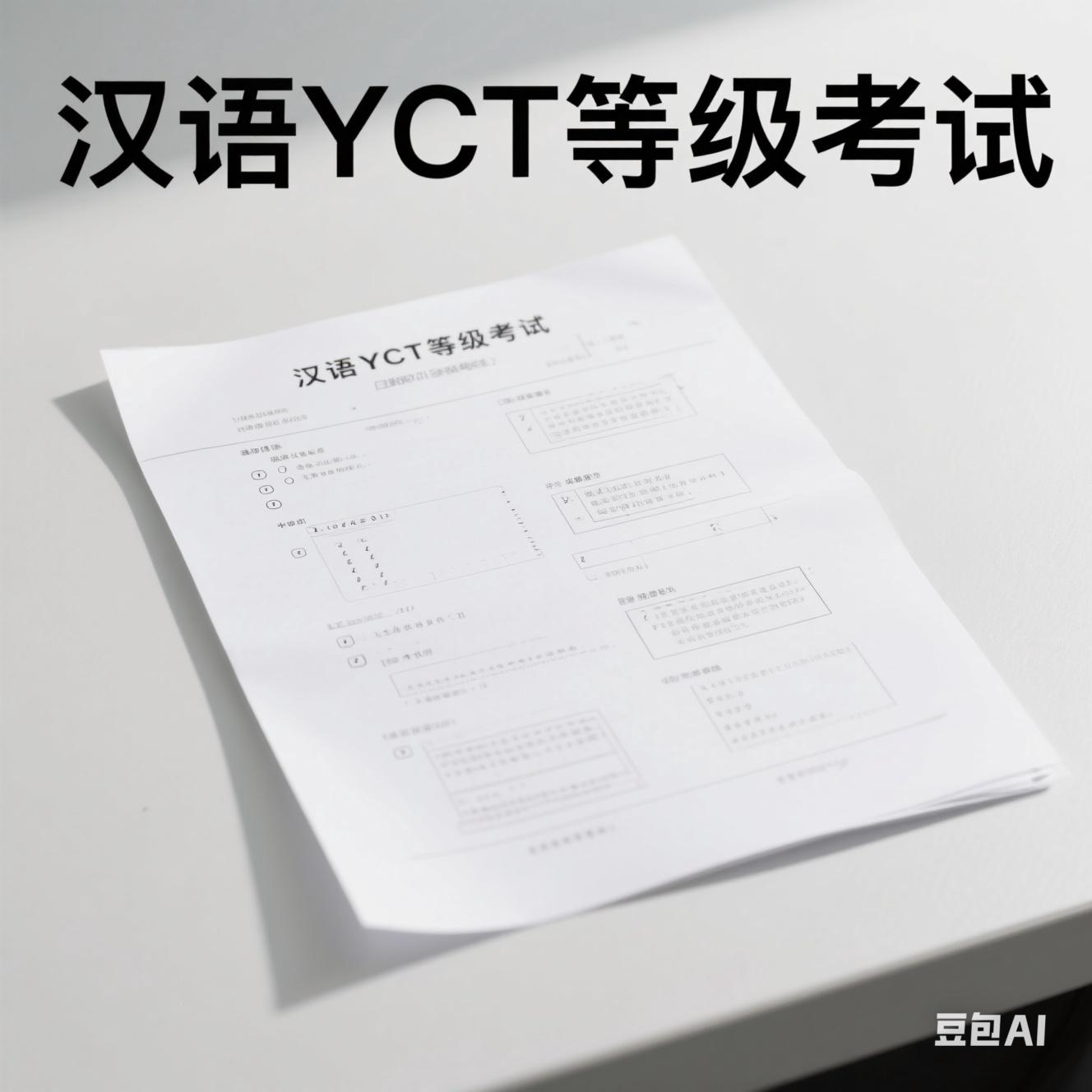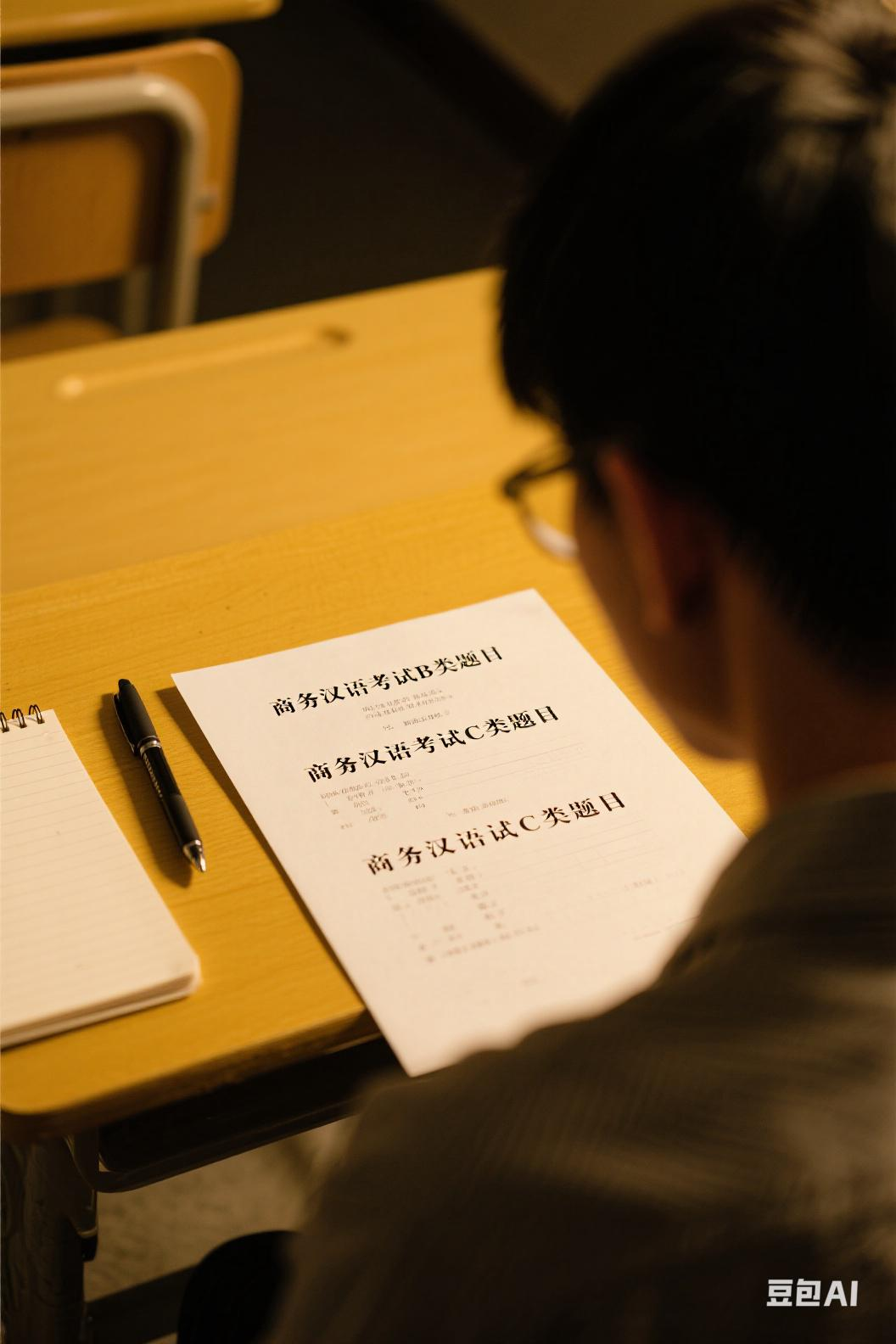The Chinese Proficiency Test for Primary and Secondary School Students (YCT) is an international standardized test designed to assess the ability of non-native Chinese speakers in primary and secondary schools to use the language in their daily lives and studies. It aims to boost their confidence and sense of achievement in learning Chinese. The test adheres to the principle of integrating assessment and teaching, closely aligning with the current state of Chinese language education for primary and secondary school students and the textbooks used, thereby promoting teaching and learning through assessment.
The YCT is divided into two parts: written test and oral test, which are independent of each other. The written test includes YCT (Level 1), YCT (Level 2), YCT (Level 3) and YCT (Level 4); the oral test includes YCT (Level 1) and YCT (Level 2).
1.YCT Level 1: It is mainly aimed at primary and middle school students who learn Chinese for 2-3 hours per week for 3 months and master the most commonly used words and related grammar knowledge. Candidates who pass this level can understand and use the most commonly used Chinese words and sentences and have the ability to further learn Chinese.
2.YCT Level 2: It is mainly aimed at primary and middle school students who study Chinese for one semester (half a semester) at the pace of 2-3 class hours per week and master 150 most commonly used words and related grammar knowledge. Those who pass can understand and use some very simple Chinese words and sentences to meet specific communication needs.
3.YCT Level 3: It is mainly aimed at primary and middle school students who study Chinese for two semesters (one academic year) with a weekly schedule of 2-3 hours and master 300 most commonly used words and related grammar knowledge. Those who pass the test can communicate simply and directly on familiar daily topics in Chinese, reaching the excellent level of primary Chinese.
4.YCT Level 4: This level is designed for primary and secondary school students who have studied Chinese for more than two semesters at a pace of 2-3 class hours per week, mastering 600 commonly used words and related grammar knowledge. Those who pass this level can use Chinese to complete basic communication tasks in daily life and studies, and can handle most communication situations when traveling in China.
5.YCT Oral Test Level 1: It is mainly for primary and middle school students who have studied Chinese for one or two semesters at a pace of 2-3 hours per week and have mastered about 200 commonly used words and related grammar knowledge. Those who pass the test can understand and express relatively familiar daily topics in Chinese orally to meet basic communication needs.
6.YCT Oral Test Intermediate: It is mainly for primary and middle school students who have studied Chinese for more than two semesters at a pace of 2-3 hours per week and have mastered about 400 most commonly used words and related grammar knowledge. Those who pass the test can understand and communicate with native Chinese speakers in simple oral communication.
Ii. Content and Form of the Examination:
Written test: The written test will be conducted in the form of paper and pen, and the total test will take about 50 minutes (including 5 minutes for candidates to fill in personal information).
Level One: The listening section lasts about 15 minutes and consists of 20 questions divided into four parts, mainly consisting of multiple-choice and true/false questions. It tests the listener's ability to understand simple words, phrases, and short sentences. The reading section lasts about 25 minutes and also consists of 20 questions divided into four parts, mainly consisting of multiple-choice and true/false questions. It tests the listener's ability to recognize and understand common Chinese characters, words, and simple sentences.
Level 2: The listening section lasts about 15 minutes and consists of 20 questions. All four parts are judged by listening to the content or choosing the answer, which examines the understanding of slightly complex phrases and sentences; the reading section lasts about 27 minutes and consists of 20 questions. It examines the understanding of about 150 words and simple passages through different question types.
Level 3: Listening section lasts about 20 minutes and consists of 30 questions, including post-listening selection and judgment, assessing the understanding of daily dialogues and short passages. Reading section lasts about 30 minutes and includes 30 questions of various types, covering a range of question types, assessing the understanding of approximately 300 words and longer, more content-rich texts. Writing section lasts about 25 minutes and includes 10 questions, such as fill-in-the-blank, sentence creation, and writing short passages based on pictures, assessing the application of vocabulary and grammar, as well as basic written expression skills.
Level 4: Listening section lasts about 25 minutes and consists of 30 questions, covering dialogues and short passages in various scenarios to assess comprehension of more complex content; Reading section lasts about 35 minutes and also consists of 30 questions, with texts that are more challenging, testing understanding of around 600 words and complex articles; Writing section lasts about 30 minutes and includes 10 questions, such as completing sentences and writing short essays, to evaluate more sophisticated written expression skills.
Oral test: it is conducted by on-site recording or computer examination.
Primary: about 17 minutes, a total of 25 questions. There are reading words and sentences, answering questions according to pictures or prompts, short dialogues and other types of questions, to test the basic pronunciation and intonation, vocabulary use and simple oral expression ability.
Intermediate: about 19 minutes, a total of 14 questions. It includes reading short passages, expressing opinions on given topics, situational dialogues, etc., to test more fluent and coherent oral expression and the ability to express opinions.
3. Scoring criteria:
Written test: each question is scored correctly or incorrectly, and the total score is the sum of the scores of each part. The full score of the written test at all levels is 100 points, and 60 points is the passing mark. The score report will show the individual scores and the total score of listening, reading and writing (level 3 and 4).
Oral Test: Professional examiners will evaluate candidates based on their pronunciation and intonation accuracy, vocabulary and grammar correctness, fluency of expression, completeness of content, and logical coherence. Both the primary and intermediate levels of the oral test are scored out of 100 points, with a passing score of 60. The score report will include a comprehensive evaluation and the grade level.
4、Examination schedule
The YCT exam is typically held multiple times each year, with the specific dates announced in advance by the official Hanban International. For instance, in 2025, several exam sessions were scheduled, allowing candidates to choose the most suitable session based on their personal circumstances. The registration period usually closes a few days before the exam, for example, the registration deadline for the February 3, 2025 exam was January 7. Candidates are advised to stay updated with the latest exam times and registration information on the official Hanban International website (http://www.chinesetest.cn/).


